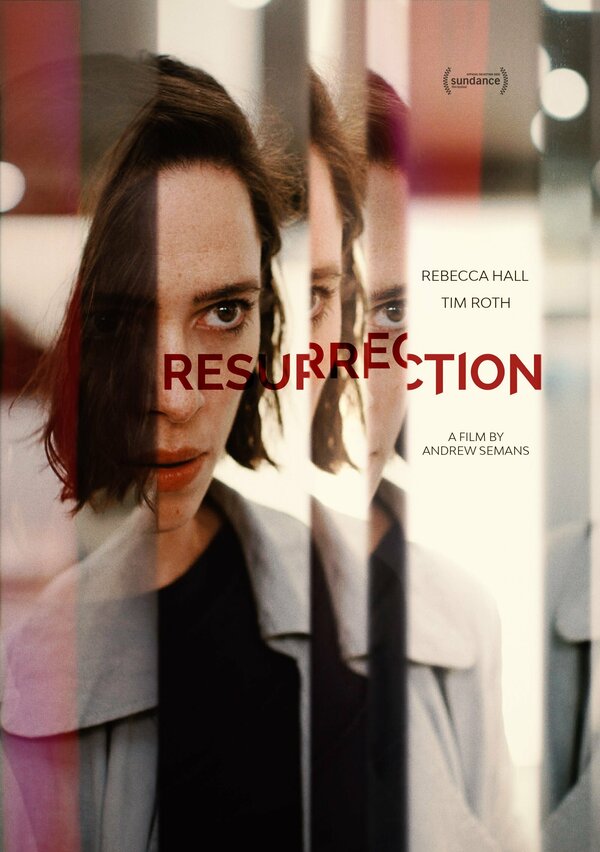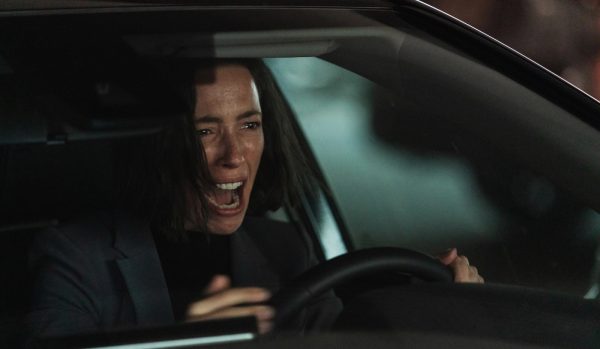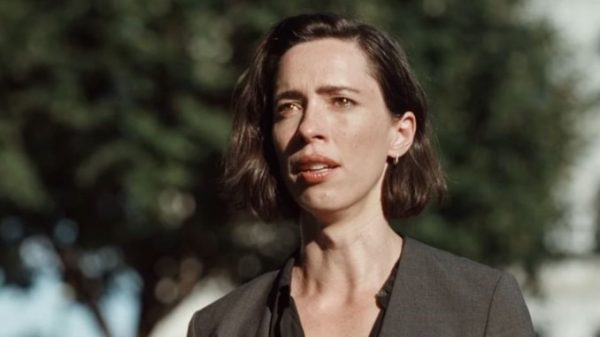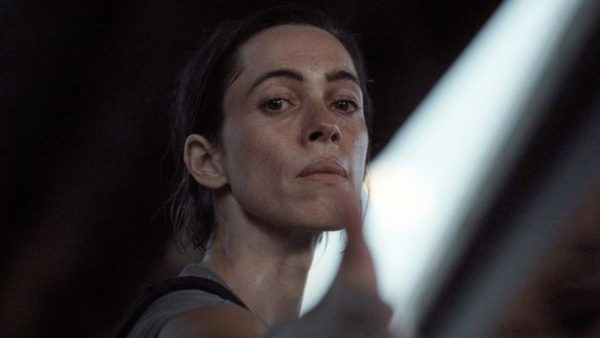Resurrection, 2022.
Written and directed by Andrew Semans.
Starring Rebecca Hall, Tim Roth, Grace Kaufman, Michael Esper, and Angela Wong Carbone.
SYNOPSIS:
Margaret’s life is in order. She is capable, disciplined, and successful. Everything is under control. That is, until David returns, carrying with him the horrors of Margaret’s past.
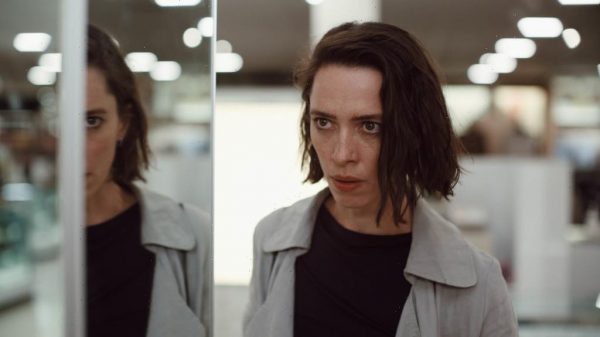
Rebecca Hall and Tim Roth are incredible actors who gave arguably two of the most under-appreciated performances of last year, in David Bruckner’s psychological horror The Night House and Michel Franco’s provocative thriller Sundown respectively.
Pitting such dynamic and exciting performers against one another in a trauma-laden horror film invites dynamite expectations, then, for Andrew Semans’ (Nancy, Please) Resurrection, which is sure to be one of Sundance 2022’s most provocative and polarising offerings.
Margaret (Rebecca Hall) lives a seemingly fulfilled life, successfully juggling a high-flying career with single parenthood as she raises a daughter, Abbie (Grace Kaufman), who is soon heading off to college. But Margaret’s regimented status quo is violently rocked when she notices a familiar man from her past, David (Tim Roth), at a work conference. David then continues to re-appear in her vicinity, forcing her to confront a deep-seated trauma bore more than two decades prior.
It’s practically a cliche these days to filter contemporary horror through the lens of trauma, but it’s such a rich, intuitive vessel through which to marry turmoils both personal and heightened that you can’t really blame filmmakers – or critics, even – for invoking it so often.
Trauma is far from a buzzy affectation in Semans’ incredibly discomforting horror-thriller, which slow-bleeds a quiet intensity from its opening moments and doesn’t let up until its final frames. The first act of the film largely leaves viewers to their own devices to soak in the ambiguous mood without much context for who David is, beyond scattered suggestions of an incident that occurred 22 years earlier, and the stifling over-protectiveness that Margaret exercises over her understandably frustrated daughter.
But as Margaret’s curated existence loses balance, audiences are forced to consider what, if anything, might be a fabrication of her fractured mind. It’s a tired typicality of psychological horror at this point, and yet Semans finds an in that feels wholly unique in its treatment of unresolved pain.
Some of the story’s trickier mechanics and concepts are however going to leave more mainstream-skewing audiences absolutely clueless; anyone baffled by The Night House probably won’t even make it through the entirety of this movie. The biggest reveal is one that skirts on the fringes of silly and creepy, working through some vividly horrifying concepts that, one way or another, will probably sit with you for a good while.
The truth of the situation becomes progressively more illusive, no matter that Semans basically stops the film mid-way for a mesmerising one-r exposition dump from Margaret, in which she details her past with David – a past rooted in abuse and something so materially strange it’d be criminal to spoil.
This revelatory confession marks a nexus point for the drama, slingshotting the story into more out-there territory while still maintaining grasp of the “Is she imagining things or not?” mystery. Semans sustains this uneasy tension all the way to the finish, where in the most thrilling terms it feels like no kooky idea is off the table. The gnarly payoff and subsequent ambiguous epilogue are sure to infuriate as many audience members as they fascinate, but it’s tough not to admire the director’s commitment to the bit.
While not Semans’ debut feature, this is his first film in an entire decade, and so feels like a moment of arrival for a genre filmmaker with a real vision of their own. Semans dares to reconfigure genre tropes in a way that audiences should probably be careful of what they wish for. While the mechanical vagaries of the outcome are somewhat frustrating, there’s a singularity to the storytelling that doesn’t feel like a director just trying to make an A24-adjacent movie. It’s certainly as aesthetically tight as we’ve come to expect from that stable, though, per Wyatt Garfield’s rich lensing and Jim Williams’ eerie, plucky string score.
It is however easy to imagine the narrative’s bigger risks proving less persuasive without the prodigious talents of its two leads. Hall, who is fast making a name for herself as a force to be reckoned with in the horror/thriller arena, gives a densely layered performance that does so much more than merely tick off the usual traumatised tics. Her face looks so brutally, plausibly weathered in some scenes it’s difficult to believe she didn’t actually deprive herself of sleep before shooting.
As her foil, Roth makes the most of his slyly diabolical appearances throughout, flashing a blood-chillingly creepy smile at an opportune moment yet largely maintaining an air of calm that is itself resolutely unnerving. Whatever we make of the situation and its eventuality, Roth hinges David to pivot between the heightened and grounded possibilities of the central conflict.
Grace Kaufman also turns in fine work as Margaret’s daughter Abby, a young woman who risks becoming a secondary casualty to the damage inflicted upon her mother’s psyche. The difficult dynamic between overprotective mother and independent daughter leads to several superbly, authentically combustible arguments, yet the pair also share one especially touching sequence where mother teaches daughter how to drink and appreciate whiskey.
This feels almost tailor-made to divide, yet it’s difficult to argue against the skill with which it’s been assembled. Likely one of the most screw-loose horror films you’ll see all year, Resurrection bets big on some bold ideas while backed by a mesmeric Rebecca Hall performance.
Flickering Myth Rating – Film: ★ ★ ★ ★ / Movie: ★ ★ ★
Shaun Munro – Follow me on Twitter for more film rambling.
